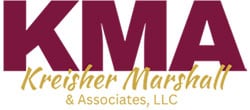While Medicare gets most of the national attention, Medicaid still remains a bit of a mystery to most people. The fact is, Medicaid is the largest source of government funding for care in a nursing home, but there is much confusion about how to qualify and who is eligible for it.
While many individuals believe Medicare will cover nursing home expenses, Medicare’s coverage of nursing home care is quite limited. In fact, Medicare generally only covers up to 100 days of skilled nursing care specifically for a hospital-related medical condition treated during a qualifying inpatient hospital stay. Rarely does someone receive a full 100 days of Medicare coverage. When Medicare won’t cover the cost of skilled nursing, one turns to Medicaid.
The most common myth about Medicaid is that it only assists people who have no money or assets. While Medicaid helps individuals pay for long-term care, you do not need to be destitute to qualify. As a general rule, a Medicaid applicant must have less than $2,400 or $8,000 in assets, depending on their income, in order to qualify. However, there are several ways to protect and preserve resources in excess of those amounts without having to pay the nursing $12,000/month, on average, until you are within those limited amounts. Oftentimes, an experienced Certified Elder Law Attorney, who is knowledgeable about different federal and state allowances for Medicaid qualification, can preserve anywhere from 50-100% of your assets depending on your individual circumstances.
Another common myth about Medicaid is that you should give your money or your house to your children in order to qualify for it. In reality, a penalty is imposed on people who transfer assets within 5 years of applying for Medicaid when fair value isn’t received. Also, while many people are advised they can give away up to $16,000/year/person for gift tax purposes, this is not true for Medicaid purposes. For Medicaid purposes, any gift over $500/month, in total, not per person, is a gift that will trigger a penalty. Penalties can be extremely costly as the penalty is a period of time that an individual will be ineligible for Medicaid and must privately pay for the nursing home. The duration of the penalty is directly correlated to the value of assets transferred, and at an average daily rate of $423.11, nursing home bills can add up quickly. “Fair value” and gifts are strictly interpreted by the state and should be discussed with a Certified Elder Law Attorney before made.
Attorney Marissa B. Marshall is a Certified Elder Law Attorney with Kreisher Marshall & Associates, 570-784-5211


